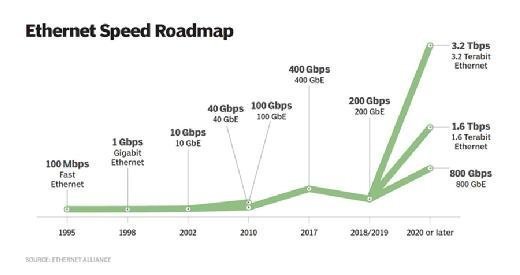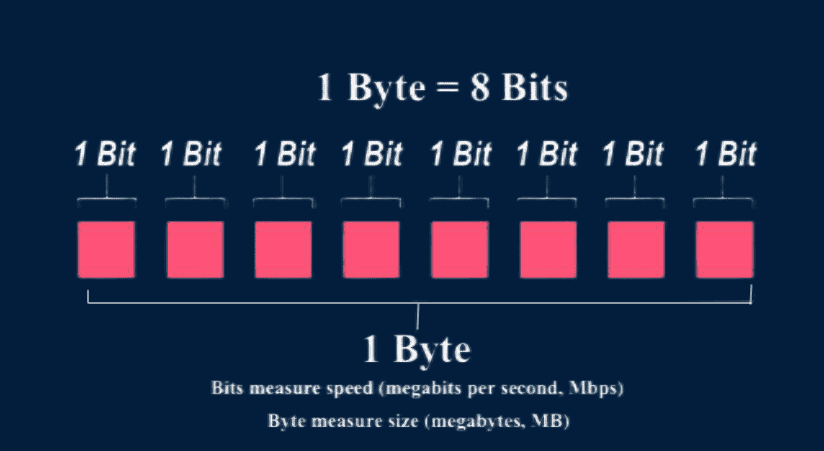A Comprehensive Overview to Measuring Megabits Per Second for Home Usage
Wiki Article
Exactly How Megabits Per Second Impact Your Online Activities
The principle of megabits per second (Mbps) plays an essential duty in shaping our on the internet experiences. As electronic tasks proliferate, recognizing the implications of Mbps on video gaming, streaming, and video clip conferencing ends up being progressively essential. Greater Mbps can enhance performance and reduce disturbances, while insufficient rates may foster frustration and inadequacy. Evaluating your household's particular demands in connection with these rates is important, particularly as multiple tools try data transfer. The subtleties of how Mbps affects different online tasks require further expedition, especially as our reliance on electronic connection continues to advance.Comprehending Megabits Per Second
When considering net speed, it's vital to understand the idea of megabits per second (Mbps), which functions as a basic dimension for information transfer prices. This metric measures just how much data can be sent over a web connection in one second, providing a clear understanding of performance capabilities - Megabits Per Second. For context, one megabit is equivalent to one million little bits, and Mbps is typically made use of to share bandwidth for different on-line tasksA greater Mbps suggests a quicker internet link, allowing users to execute jobs such as downloading and install files, surfing internet sites, and taking part in on-line video gaming extra effectively. For example, regular surfing requires around 1-5 Mbps, while streaming high-def video clip may require 5-25 Mbps. Recognizing these demands is crucial for establishing the ideal internet speed needed for specific activities.
In addition, the number of tools connected to a network can affect overall performance. Several customers streaming, gaming, or downloading and install concurrently can stress available bandwidth, causing slower speeds - Megabits Per Second. Assessing personal online behaviors and requirements is vital in choosing an internet plan that straightens with one's demands, ensuring a seamless digital experience
Streaming and Buffering Issues
Streaming high-def material has ended up being a staple of contemporary on the internet amusement, yet it is often gone along with by frustrating buffering problems. These disturbances can considerably take away from the viewing experience, resulting in frustration and possible loss of audience interaction. Buffering happens when the information transferred from the streaming service is not received quickly enough to keep a smooth playback, frequently as a result of insufficient web speed measured in megabits per second (Mbps)
In addition, real-time streaming can be impacted by network blockage, which happens when numerous gadgets share the very same bandwidth. As a result, enhancing connection speed and guaranteeing sufficient Mbps is important for a seamless streaming experience. As streaming solutions remain to develop, comprehending the effect of Mbps on buffering concerns stays critical for customers looking for uninterrupted enjoyment.
Online Video Gaming Performance
The impact of internet speed on on-line activities expands beyond streaming, substantially influencing on-line video gaming efficiency. In affordable gaming, reduced latency and high transmission capacity are critical for a smooth experience. A fast link reduces lag, enabling players to react swiftly to in-game events, which can be the difference between victory and defeat.Bandwidth, gauged in megabits per second (Mbps), plays a crucial duty in sustaining numerous devices and video gaming platforms at the same time. Inadequate bandwidth can cause went down connections or minimized game high quality, adversely influencing gameplay. As an example, online multiplayer video games call for substantial information transfer, specifically throughout peak gaming hours when many players are online.
Fast-paced first-person shooters demand higher rates to preserve responsiveness, while turn-based technique games may function fairly well on lower speeds. As on-line pc gaming continues to evolve, with increasing graphical fidelity and more intricate multiplayer environments, the demand for greater Mbps will just intensify.
Video Conferencing Quality
In today's digital landscape, video conferencing top quality is heavily affected by web speed, especially in terms of bandwidth and latency. High-quality video calls need adequate bandwidth to transmit sound and video information flawlessly. Usually, a minimum of 1.5 Mbps upload and download speeds is recommended for standard meaning video, while high-def video conferencing normally demands at least 3 Mbps.Latency, or the delay between sending and getting data, additionally plays a crucial role in the individual experience. Reduced latency makes sure that discussions flow normally without awkward stops briefly or disturbances. Ideally, latency must be listed below 150 milliseconds for efficient interaction. Greater latency can result in echo, lag, and disjointed communications, which can prevent collaboration and interaction throughout meetings.
Moreover, several individuals in a video clip conference can stress available transmission capacity, necessitating also higher speeds. Network blockage, usually triggered by simultaneous tasks like streaming or downloading, can better break down video high quality. Thus, for organizations counting on video clip conferencing for remote cooperation, comprehending the image source partnership between megabits per second and general interaction top quality is important for preserving efficiency and improving online interactions.
Choosing the Right Internet Plan
Picking an appropriate internet strategy is see this site crucial for guaranteeing optimal performance in various on-line tasks, specifically in setups that demand high bandwidth, such as video conferencing and online gaming. Megabits Per Second. When considering an internet strategy, it is necessary to evaluate both the rate and data allowance to match your specific use needsFor families with numerous customers participating in simultaneous tasks, a plan supplying higher megabits per second (Mbps) is advised. Normally, a minimum of 25 Mbps is appropriate for conventional streaming and browsing, while strategies surpassing 100 Mbps are preferable for even more intensive jobs. Furthermore, consider the nature of your online tasks; video conferencing calls for at the very least 1.5 Mbps upload rate, while on the internet gaming might need a reduced latency but regular connection.
It is also vital to examine your information cap. Limitless data strategies can avoid throttling and interruptions, specifically if hefty usage is prepared for. Study service suppliers in your location, as availability and prices can differ. By thoughtfully choosing a net plan customized to your needs, you can enhance your on-line experience, guaranteeing smooth, nonstop access to your favored tasks.
Conclusion
Finally, the importance of megabits per second (Mbps) in forming on-line tasks can not be overemphasized. Greater Mbps facilitates smooth streaming, reduces buffering, enhances pc gaming experiences, and makes certain premium video clip conferencing. Alternatively, poor transmission capacity can lead to aggravating disruptions and decreased performance across different tasks. A comprehensive understanding of individual or house Mbps requirements is vital for choosing a proper internet strategy that appropriately sustains diverse online tasks and user needs.

Going Here Usually, a minimum of 25 Mbps is suitable for typical streaming and browsing, while strategies going beyond 100 Mbps are preferable for more intensive jobs. Furthermore, think about the nature of your online activities; video clip conferencing needs at least 1.5 Mbps post speed, while online pc gaming may need a reduced latency however consistent link.
Report this wiki page